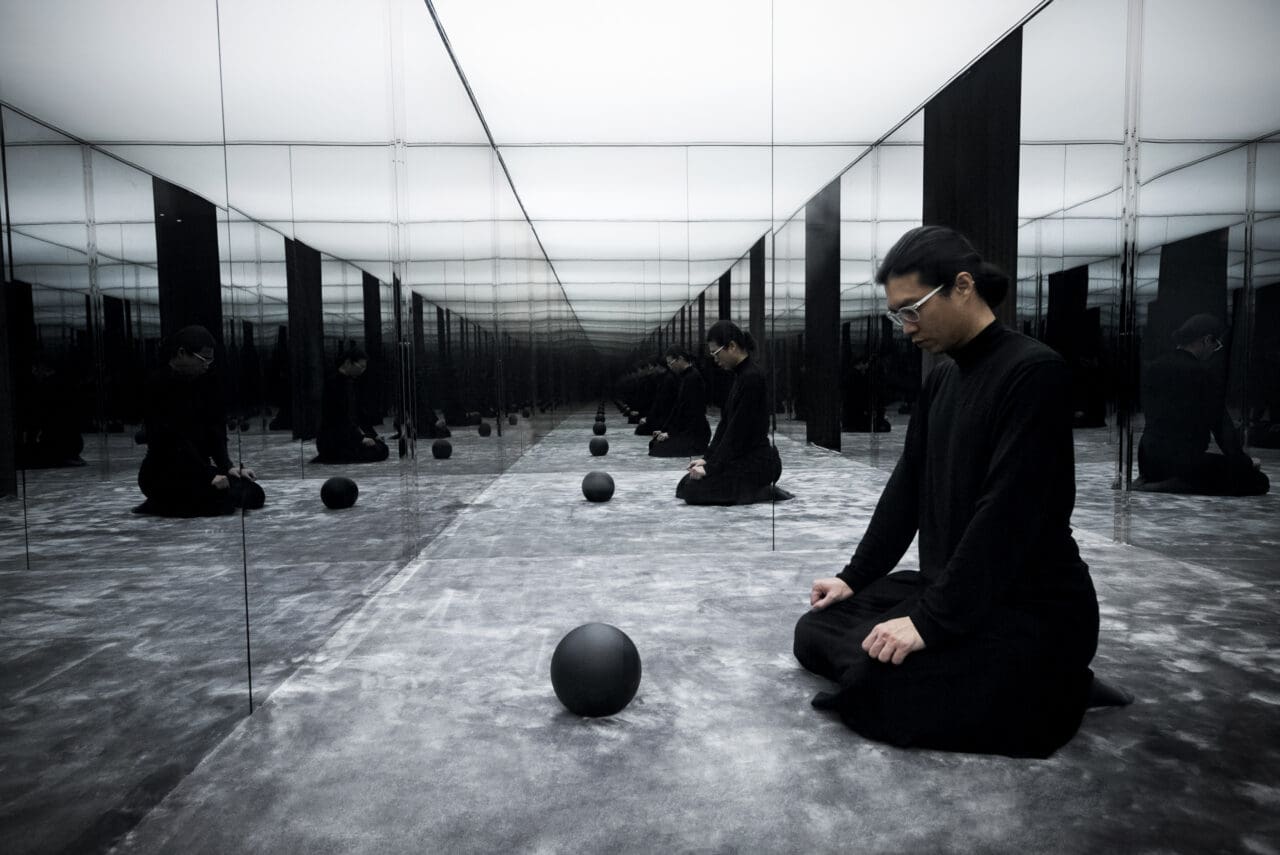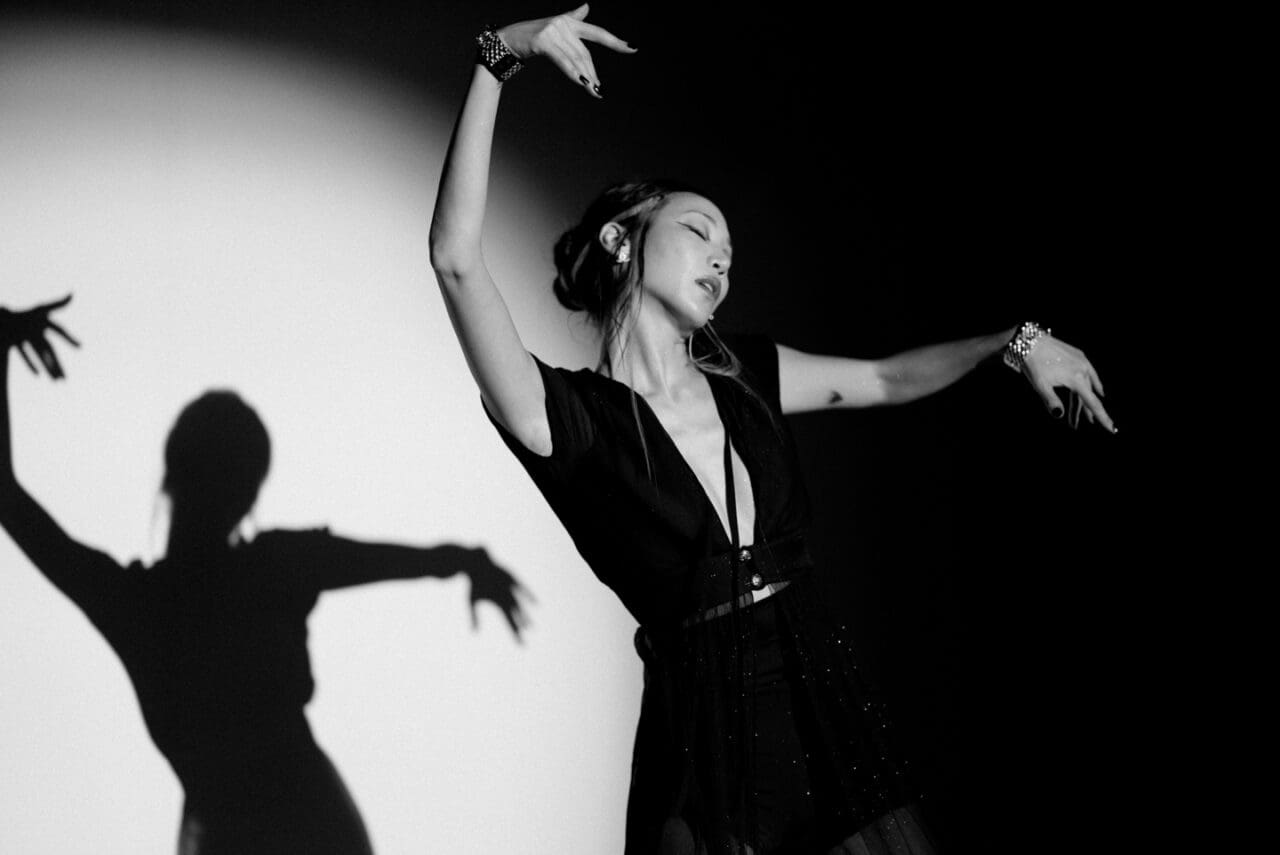The center of gravity around which Expats—the new series from writer and director Lulu Wang, coming to Prime Video on January 26—orbits is an earth-shattering family tragedy. Across multiple timelines and six episodes, a group of women living within the multicultural fabric of Hong Kong hurtle toward this seemingly inevitable moment and then grapple with its consequences in the aftermath. Yet where this might lend itself to the trappings of the kind of true-crime-inspired melodramas that have swept through television over the past decade, Wang very intentionally went down a different route. Here, it takes two full gripping episodes of getting to know these women in all their strengths and flaws—immersing the viewer in the city that surrounds them through elegant, lingering camerawork—before the devastating event around which the narrative revolves is revealed.
It’s a slow-burn approach that fans of Wang—whose major breakout, 2019’s comedy-drama The Farewell, tackled similar themes of displacement and grief—will be familiar with. So it comes as a surprise to learn she initially hesitated to take the project on. “I mean, Hong Kong means so much to so many people,” she says, noting that she first had to figure out her perspective on the story, especially given her own experiences of being born in Beijing and emigrating to the US at the age of six. “Am I an expat? Am I an immigrant? Which community do I really relate to more, and how would I tell the story of the intersection of all of these different communities? I think that my hesitation just came from a sense of responsibility, really—I didn’t know if I could be all things to all people.” Having mostly worked in independent film, Wang also shares she was at first intimated by the scale of the project, which unfolds over six and a half hours and came with a Prime Video–level budget. “But then I spoke with Nicole, and she said, ‘Just do what you do. I’ve done small films, I’ve done large films, but as long as you do you, that’s all that matters.’”
Nicole being Nicole Kidman, the show’s star and executive producer. It all began when Kidman’s sister (who herself was living in Singapore as an expat at the time) lent her a copy of Janice Y. K. Lee’s 2016 novel, The Expatriates; after inquiring about the rights and discovering the book hadn’t been optioned, Kidman quickly snapped it up via her production company, Blossom Films. It turns out Kidman had also recently seen Wang’s The Farewell. “I went, Okay, there she is—our visionary has appeared,” Kidman remembers, smiling. “Now I’ve just got to go and convince her to do it. I think there was a lot of begging involved.” Adds Wang: “Well, Nicole knew right away that the way to my heart is through food, so she said: ‘Shall we have dinner?’ I was like, ‘It was a no, and now it’s a yes.’”
For Wang and Kidman, it was immediately obvious that the driving force behind the show had to be the three women at its core (as opposed to the more sensational aspects of its plot). There’s Margaret, played by Kidman herself, whose picture-perfect family life is shattered as she navigates her way through inconceivable loss; her neighbor Hilary, played by the Indian American actor Sarayu Blue, who is attempting to regain control of her marriage in the face of infidelity and her struggles to have a child; and finally, the Korean American Columbia grad Mercy, played by newcomer Ji-young Yoo, whose free-spirited exterior masks a more turbulent inner world that leads her to become directly implicated in the show’s central tragedy. But an equally fundamental part of Wang’s initial pitch to Prime Video was to extend the length of the show’s fifth episode to 96 minutes—essentially that of a feature film—and to focus it almost entirely on the community of Filipino domestic workers (or helpers, as the well-to-do women euphemistically call them) that gathers in the parks and public spaces of the city on their days off to gossip and catch up with their families back home via FaceTime.
Where many TV executives might have balked at the idea of placing the main characters (and in Kidman, its most recognizable star) as background players for a significant portion of the show, Wang—with Kidman’s full support—took the idea to the Prime Video team as something of a nonnegotiable. After a little hesitation, they bit. “It was just incredibly important to me because I felt like that was my way into the story,” Wang says. “I had made The Farewell about my grandmother, and so many of these women felt like my family and my grandmother, these women who spend their entire lives servicing other people. I felt like I knew these women so intimately. It was about bringing dignity to them. I wanted to show the story through their eyes and really understand who they are as people—not just in relationship to the expats.”
“It was the only way,” Kidman adds, firmly. “This show needed the heart and soul of Lulu, and if it didn’t have that, then it would have been empty.”
The next step was to assemble the writers room, which ended up being an all-women team that included the novel’s author. Wang describes Lee as an invaluable resource in helping to shed light on the imagined backstories of the handful of secondary characters she was planning to bring to the fore. “I kept joking and saying to Alice [Bell, cowriter and executive producer], ‘Should we get a man in this writers’ room just to have diversity?’ And then we’d look at each other and be like, ‘Nah, we know how to write them. I feel like we can handle it,’” Wang says, laughing. “But even though it was an all-female writers room, it was important to us to make sure we extended that empathy to all of the characters. We didn’t want to villainize anybody, and the men needed to be loving and sympathetic and well-rounded too.”
When it came to finding the actors who could tackle these complex, mercurial characters, Wang and Kidman worked with casting agents across both Los Angeles and Hong Kong—and decided to follow their instincts. “I think you asked what drew me to the project, but the real question is, what wouldn’t draw me to this project?” Yoo says of being cast as Mercy, a character that was written in part by drawing on Wang’s own feelings of visiting China while at college, feeling that strange tension of both belonging to a place while feeling somewhat apart from it. For Blue, meanwhile—previously best known for her work in sitcoms—the show presented an opportunity that makes her visibly emotional. “I just found it so meaningful, and it was such an enormous gift to play such a rich, multidimensional South Asian character,” she says. “It’s so exciting to go, Okay, it’s really not about whether the character is liked or not liked. It’s about the story. It was incredibly liberating.”
But the fourth main character in the show, really, is the city itself: Through cinematographer Anna Franquesa-Solano’s lens, we see the full breadth of Hong Kong’s unique urban topography in all of its strange beauty, from the lush tropical forests that sprawl across the well-heeled neighborhood of the Peak, to the smog and neon lights of the night markets, to the glossy halls of the luxury hotels where businessmen and expats congregate, to the dank walk-up apartment where Mercy entertains her various friends and lovers over the course of the show. “I mean, Hong Kong is disappearing in many ways and has been for some time,” says Wang, noting that upon returning to one of the old-school noodle restaurants they filmed a number of scenes at a year after production, she discovered it had closed down. “We really felt a lot of responsibility to capture everything as it was in that moment and to show how important that is for people.”
While filming in the city came with plenty of challenges—especially during the strict pandemic lockdowns under which the show was filmed—the actors’ experience of the sheer visceral force of the city’s dramatic climate and its dense population of overlapping communities came to inform not just the tone of the show but the characters themselves. “I’m from Colorado, so when I got to Hong Kong and walked out of my hotel room for the first time, I was just like, ‘Oh, my God, what is going on?’” Yoo says. “But it made me think about films that use weather really well, like Parasite or Do the Right Thing, films that use heat and rain as these forces that kind of wash all of the human emotion out into the open. And that was helpful for me with Mercy as a character, who has so much she’s holding inside of her and refuses to let out and this inability to express how she’s feeling.”
“We would see things all the time and be like, ‘Can that go in the show?’ And Lulu would say, ‘Yeah, trust me, I’ve got it,’” says Kidman. “That’s something you can’t fake or use CGI to re-create. You have to be there.”
While filming the show may have been a once-in-a-lifetime experience, it came with a weight of responsibility too. Over the past decades, Hong Kong has consistently made headlines as the influence of the Chinese Communist Party has slowly encroached on local government, compromising the democratic freedoms it previously enjoyed after becoming a semiautonomous region of China in 1997. For Wang, it would have been remiss not to explore these political tensions. “It was very natural, and it was one of the first things that the other writers and I talked about,” she says. The show is very purposefully set in 2014, at the height of the Umbrella Movement—and what begins as something glimpsed in news channels scrolling on TVs in the background slowly moves to the forefront as two characters within Mercy’s orbit find themselves drawn into the protests, with alarming consequences.
“I think 2014 was a moment where the city was on the precipice of something transformational,” Wang continues. “There was a lot of hope, and I think many people still hold onto a lot of hope. The show is really about resilience and strength, and while 2014 wasn’t the only time Hong Kongers have shown that, it was a particular year where I think there was a tremendous amount of it.” For Wang, it was important to remain open to the feedback of her largely local crew throughout the filming process to ensure she was painting an accurate picture of the city and its inhabitants. “What was really important for me was to say to them, ‘Don’t treat this like a hierarchy, where you feel like you can’t tell me that I’m wrong.’ It’s actually really helpful to me if you tell me that I’m wrong or I’m portraying something in a way that could be better or more authentic.”
For all its attention to detail, though, what Expats leaves you with after watching is its broader emotional strokes: the tenacity and complexity of the three women at its core, brought to life by a trio of extraordinary performances, and the reminder that in life, there’s no such thing as an easy, orderly ending. “I want it to leave people with a sense of grace and hope,” says Wang, after a pause. “And also humility, in that we don’t really know people in the way we might assume we know them. Hopefully the show is like an onion that we slowly pull back: We set it up so that you don’t like one character, but then you peel off a layer and you start to have more compassion for them. I didn’t want it to be tidy or neat.”
Editor
Liam HessCredit
Lead image: Amazon Studios










